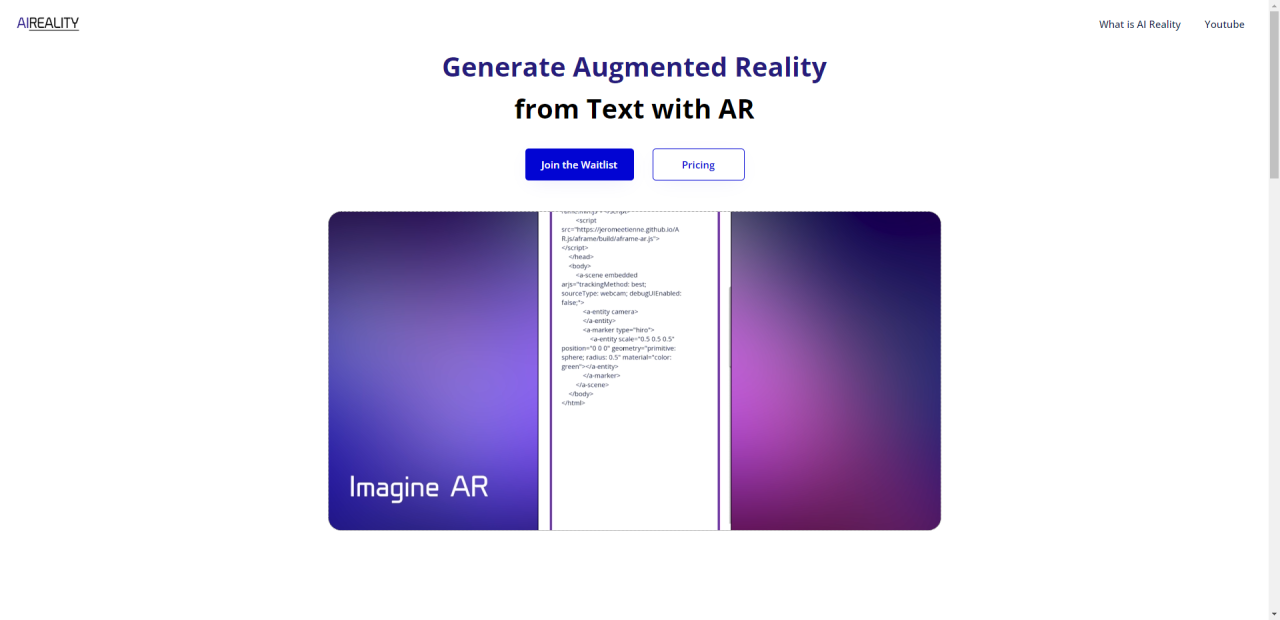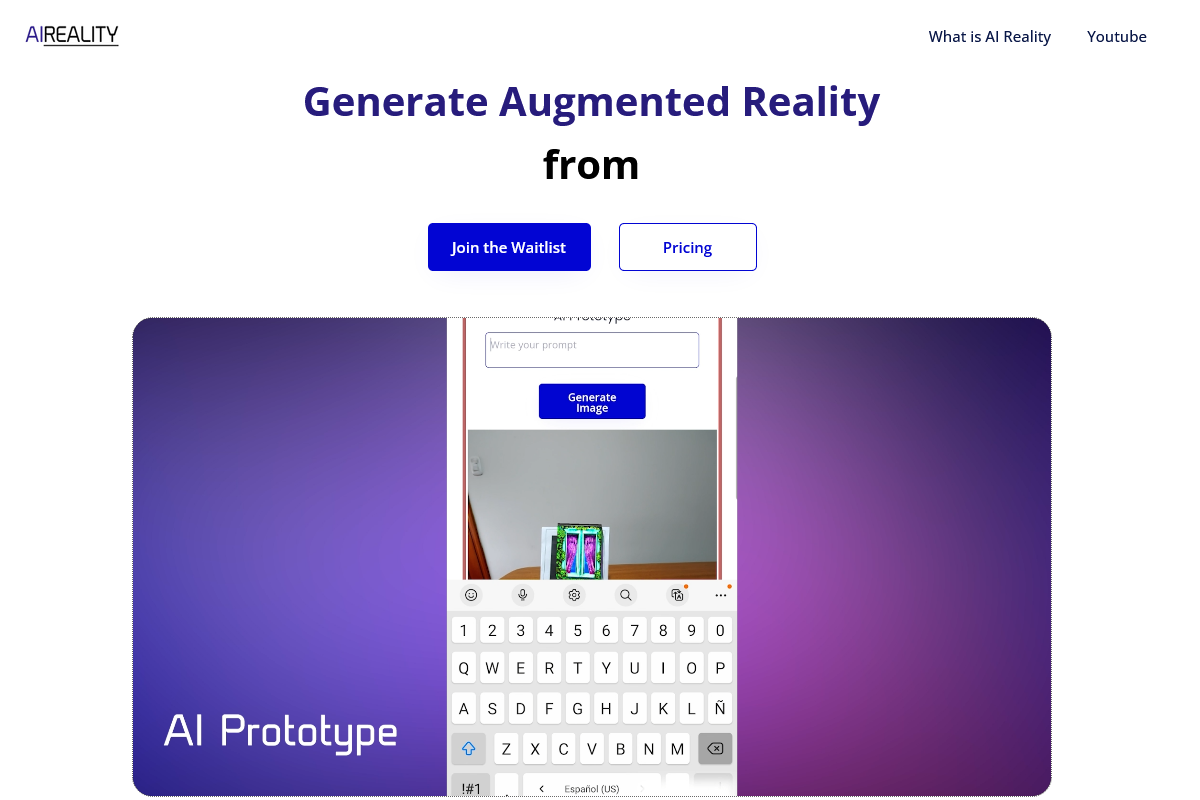Reality AI Lab is pushing the boundaries of what’s possible with artificial intelligence. We’re not just talking about algorithms; we’re exploring how AI can reshape our understanding of reality itself, impacting everything from healthcare and gaming to environmental protection. This exploration delves into the core technologies, applications, and societal implications of this groundbreaking field.
Imagine a world where AI seamlessly integrates with our physical environment, providing real-time insights and solutions to complex problems. This is the vision driving Reality AI Lab’s innovative research. We’ll be examining the key technologies powering this vision, exploring their applications across diverse industries, and discussing the ethical considerations inherent in such powerful tools.
Reality AI Lab: Shaping the Future with Immersive Technologies

Reality AI Lab is a hypothetical research facility dedicated to pushing the boundaries of artificial intelligence in creating realistic and interactive virtual and augmented realities. Our mission is to develop cutting-edge AI technologies that seamlessly blend the digital and physical worlds, enriching human experiences and solving complex real-world problems.
Introduction to Reality AI Lab

Reality AI Lab envisions a future where AI empowers humans to interact with information and environments in intuitive and immersive ways. Our research focuses on developing AI algorithms that understand and respond to human behavior within simulated environments, enabling more realistic and engaging experiences across various sectors.
Potential areas of research and development include advanced simulation engines, AI-driven content generation, realistic human-computer interaction, and ethical AI frameworks for virtual and augmented reality. The potential impact on industries like healthcare, gaming, entertainment, and environmental monitoring is immense, promising to revolutionize how we learn, work, and interact with the world.
Core Technologies of Reality AI Lab

Three key technologies underpin Reality AI Lab’s work: deep learning for realistic content generation, advanced physics engines for simulating realistic interactions, and natural language processing (NLP) for intuitive human-computer interaction.
Deep learning enables the creation of photorealistic visuals, believable characters, and complex environments. Advanced physics engines provide realistic interactions within these environments, allowing for accurate simulations of physical phenomena. NLP allows users to interact naturally with the AI, using voice commands and conversational interfaces. Deep learning’s advantage lies in its ability to learn complex patterns, but it requires large datasets and significant computational power.
Reality AI Lab focuses on cutting-edge AI applications, and one area we’re particularly interested in is the analysis of unusual aerial phenomena. Think about how we could use AI to identify and track things like the strange mystery drone recently spotted. Understanding its flight patterns and capabilities could inform the development of more robust AI-driven surveillance systems, ultimately improving the capabilities of Reality AI Lab.
Physics engines offer precision and predictability but can be computationally expensive for complex simulations. NLP enables natural interaction but faces challenges with ambiguity and nuanced language.
Reality AI Lab is pushing the boundaries of immersive technology, exploring how AI can enhance our perception of reality. Imagine working on a project during your commute – if only the connection was reliable! That’s where the improved bc ferries wifi could be a game-changer, allowing seamless access to the cloud for researchers. Back to Reality AI Lab, this improved connectivity opens up new possibilities for remote collaboration and data processing, significantly boosting our research capabilities.
Ethical considerations are paramount. We are committed to developing AI responsibly, ensuring fairness, transparency, and accountability in our technologies. This includes addressing potential biases in training data, protecting user privacy, and mitigating the risk of misuse.
Applications of Reality AI Lab’s Research
Reality AI Lab’s research has wide-ranging applications. Here are some examples:
Healthcare: Simulations for surgical training, immersive rehabilitation therapies, and AI-powered diagnostic tools using medical imaging data.
Gaming: Dynamically generated game worlds, AI-driven non-player characters (NPCs) with realistic behaviors, and personalized gaming experiences.
Environmental Monitoring: A system for visualizing and analyzing environmental data in a 3D interactive environment. This allows for easier understanding of complex datasets and facilitates better decision-making in environmental management.
| Feature | Benefit | Challenge | Mitigation Strategy |
|---|---|---|---|
| 3D Visualization of Environmental Data | Improved understanding of complex datasets | Data volume and processing power | Cloud-based processing and data compression |
| Interactive Exploration of Data | Facilitates data analysis and interpretation | User interface complexity | Intuitive and user-friendly interface design |
| Predictive Modeling | Forecasting environmental changes | Accuracy of predictive models | Continuous model refinement and validation |
| Collaboration Tools | Facilitates communication and collaboration among stakeholders | Integration with existing systems | Development of standardized APIs and data exchange protocols |
Challenges and Future Directions for Reality AI Lab
Scaling Reality AI Lab’s technologies presents several challenges. These include the computational demands of complex simulations, the need for large and diverse datasets, and the ongoing development of robust and ethical AI algorithms.
Future research directions include exploring novel AI architectures for more efficient and scalable simulations, developing more sophisticated methods for data acquisition and annotation, and investigating the integration of AI with other emerging technologies such as blockchain and the metaverse.
- Collaboration with universities and research institutions
- Partnerships with industry leaders in gaming, healthcare, and environmental technology
- Open-source initiatives to foster community development and innovation
Illustrative Example: A Simulated Scenario
Imagine a wildfire simulation. Reality AI Lab’s technology creates a highly realistic 3D model of a forest, complete with detailed vegetation, terrain features, and even individual trees with varying levels of dryness. The simulation accurately models wind patterns, temperature, and humidity, influencing the spread of the fire in real-time. Before the deployment of Reality AI Lab’s technology, firefighting strategies were based on limited data and estimations, resulting in inefficient resource allocation and delayed responses.
After the implementation, firefighters can visualize the fire’s potential spread, allowing for proactive resource deployment and better decision-making, minimizing damage and improving response times. The simulation allows for testing different firefighting strategies in a safe and controlled environment, ultimately leading to improved efficiency and reducing the risk to human lives and property. The visual elements include the realistic depiction of the forest, the dynamic spread of the fire with changing colors and intensity, and the movement of firefighting vehicles and personnel, all rendered in high fidelity.
Potential Societal Impact

Reality AI Lab’s work has the potential to significantly improve healthcare, enhance entertainment, and facilitate environmental protection. However, potential negative impacts include the misuse of realistic simulations for malicious purposes, the creation of deepfakes, and the potential for job displacement due to automation. Mitigation strategies include developing robust detection mechanisms for deepfakes, creating ethical guidelines for the development and use of AI-generated content, and investing in retraining programs for workers affected by automation.
The overall societal impact of Reality AI Lab’s research is expected to be largely positive, offering significant benefits across various sectors. However, careful consideration of ethical implications and proactive mitigation strategies are crucial to ensure responsible innovation and prevent potential harms.
Last Point
Reality AI Lab’s work represents a significant leap forward in our ability to leverage AI for the betterment of society. While challenges remain in scaling these technologies and mitigating potential risks, the potential benefits – from revolutionizing healthcare to protecting our planet – are immense. The journey ahead is filled with exciting possibilities, and Reality AI Lab is committed to navigating this path responsibly and ethically, ensuring a future where AI empowers us all.
Reality AI Lab is pushing the boundaries of AI, exploring cutting-edge applications. Sometimes, though, even the best systems hit a snag, like when you find yourself facing the frustrating issue of chatgpt not working. Understanding these limitations helps Reality AI Lab refine its own models and build more robust solutions for the future of AI. Ultimately, this troubleshooting informs the development of more reliable and accessible AI technology.
FAQ Summary
What types of AI does Reality AI Lab use?
Reality AI Lab utilizes a blend of machine learning techniques, including deep learning and reinforcement learning, tailored to specific applications.
How does Reality AI Lab ensure ethical AI development?
Ethical considerations are integrated throughout the research process, involving rigorous testing, bias detection, and ongoing review by an ethics board.
Who are Reality AI Lab’s main collaborators?
We collaborate with leading universities, research institutions, and industry partners across various sectors.
What funding sources support Reality AI Lab?
Funding comes from a mix of private investment, government grants, and corporate partnerships.
